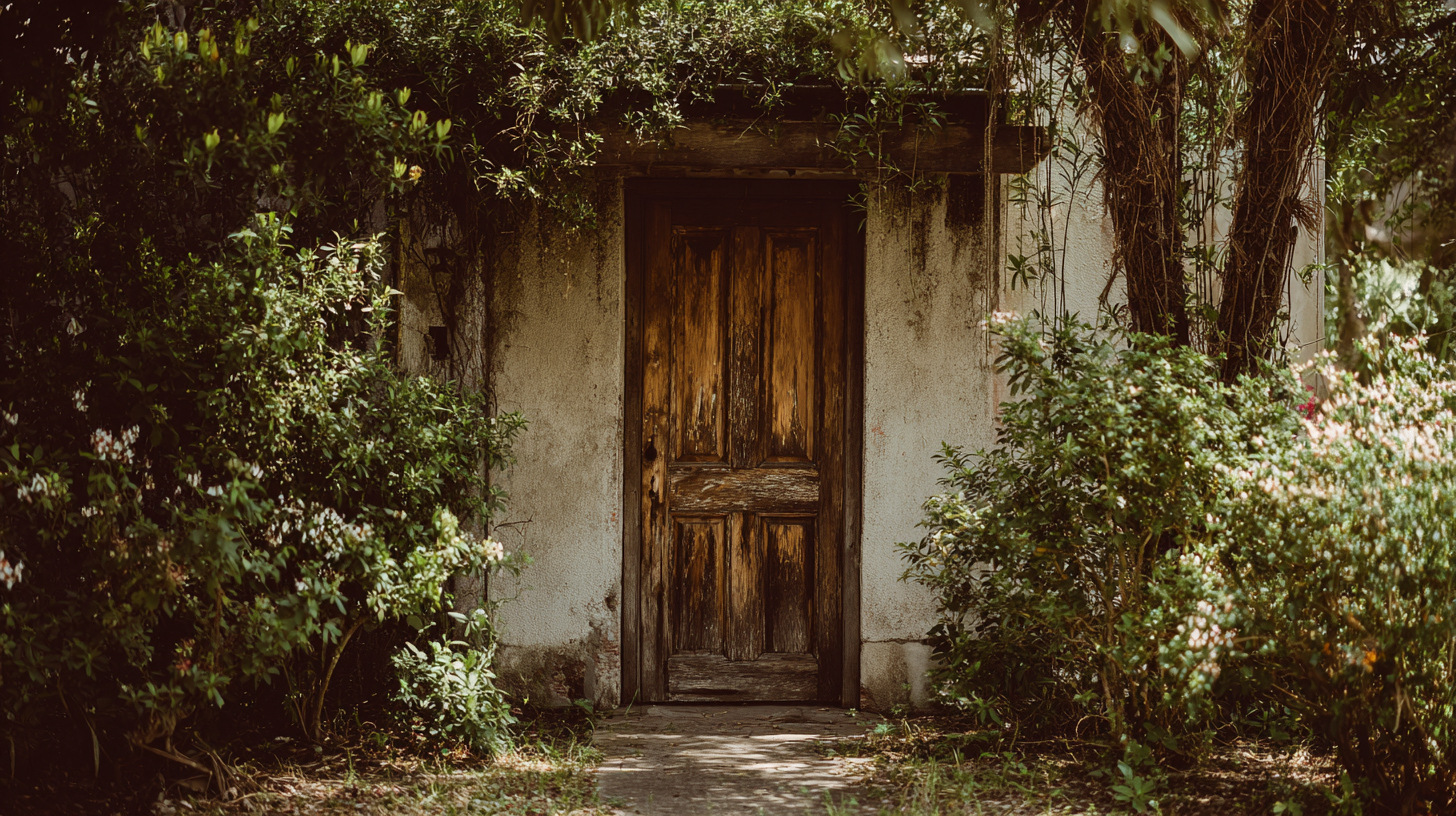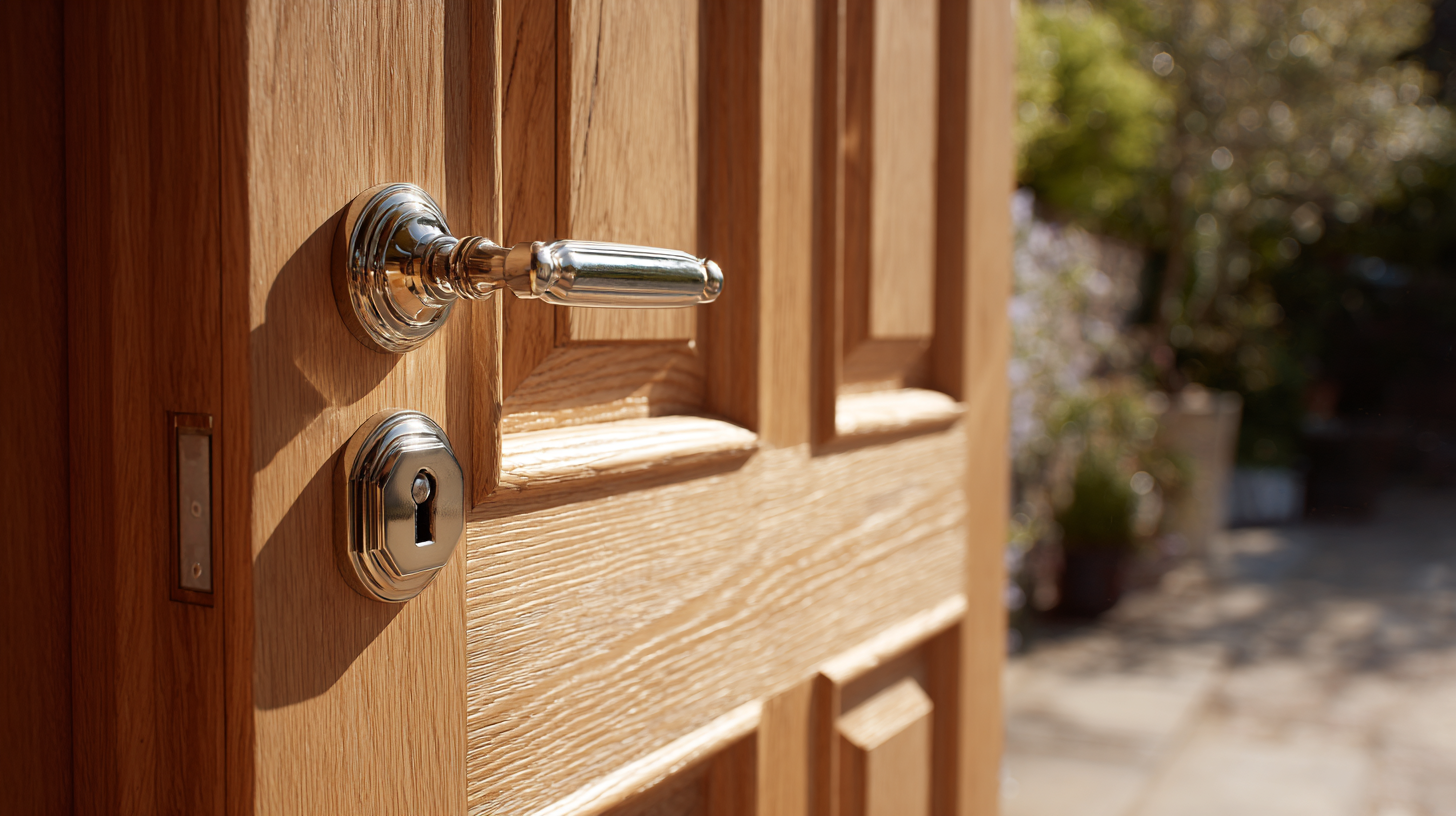When it comes to enhancing the aesthetic appeal and functional integrity of your home, choosing the right external doors is paramount. These doors serve as the gateway to your living space, making a significant impact on first impressions while providing security and insulation. With an overwhelming variety of styles, materials, and designs to choose from, making a decision can often feel daunting. This guide aims to demystify the process of selecting the perfect external doors by exploring key considerations such as personal style, material durability, and energy efficiency. Whether you're aiming for a modern look with sleek lines or a more traditional vibe with ornate details, understanding the nuances of external doors will empower you to make an informed choice that complements your home’s architecture and enhances its value. Join us as we unlock the secrets to finding the ideal external doors that perfectly align with your vision and lifestyle.

When selecting external doors for your home, it’s essential to understand their significant impact on both curb appeal and property value. The right door can function as a striking focal point, capturing attention and setting the tone for your home’s exterior. For instance, popular front door colors can dramatically enhance visual appeal, making your property stand out in a competitive real estate market. Shades like deep blue or elegant black not only evoke sophistication but can also suggest warmth, inviting prospective buyers to take a closer look.
Furthermore, the choice of style is equally important. Traditional designs may offer timeless appeal, while modern aesthetics can resonate with contemporary tastes. This is reflected in recent trends where even subtle changes, like selecting a striking door color, can lead to an increase in your home’s value. As design experts highlight, investing in these aesthetic upgrades offers homeowners a rewarding return, proving that thoughtful choices in external doors extend beyond mere functionality to significantly influence curb appeal and market desirability.
When selecting external doors for your home, energy efficiency plays a crucial role in both cost savings and environmental benefits. With the North American fiberglass door market exceeding $7.03 billion in 2023, it is clear that homeowners are increasingly prioritizing sustainable options. The projected compound annual growth rate of approximately 5.3% from 2024 to 2032 highlights the rising demand for energy-efficient doors, which can significantly contribute to reducing heating and cooling costs.
Tips: When choosing your external doors, look for models with high energy efficiency ratings. Features such as insulated frames and double-glazing can enhance thermal performance, further decreasing your energy expenditures. Additionally, fiberglass doors are known for their durability and low maintenance needs, making them an excellent long-term investment.
Moreover, opting for energy-efficient external doors can positively impact your carbon footprint. With advancements in technology related to door production, selecting the right materials not only benefits your wallet but also supports a cleaner environment. By investing in sustainable building materials, such as fiberglass, homeowners can enjoy significant environmental advantages while enhancing the aesthetic appeal of their properties.
| Type of Door | Material | Energy Efficiency Rating | Estimated Cost ($) | Environmental Impact |
|---|---|---|---|---|
| Fiberglass Door | Fiberglass | R-Value 6.0 | 200 - 300 | Low carbon footprint, recyclable |
| Steel Door | Steel | R-Value 5.0 | 150 - 250 | Recyclable, but energy-intensive production |
| Wood Door | Solid wood | R-Value 4.0 | 300 - 600 | Sustainable if sourced responsibly |
| Vinyl Door | Vinyl | R-Value 4.5 | 150 - 400 | Less sustainable, but durable |
When selecting external doors for your home, understanding security ratings is crucial for ensuring safety. Security ratings typically evaluate the door's resistance to forced entry, utilizing standards like the ASTM or the British Standard BS 3621. A higher rating indicates enhanced protection, meaning the door can withstand greater force. Opting for doors with at least a security rating of 3 stars is advisable, as these provide a robust defense against potential intruders.

Tips for Choosing Secure External Doors:
- Material Matters: Look for solid wood, fiberglass, or steel doors that offer better resistance to break-ins compared to hollow-core doors.
- Quality Locks: Ensure the door is fitted with high-quality deadbolt locks, preferably with smart technology for added convenience and security.
- Reinforced Frames: Consider doors with reinforced frames and metal plates to significantly enhance security against forced entry.
Additionally, don't overlook the importance of proper installation. Even the strongest door will be ineffective if not installed correctly. Hiring a professional installer can ensure that all components, including locks and hinges, are properly fitted and aligned for optimal performance.
 When it comes to selecting the perfect external doors for your home,
the material is one of the most significant factors to consider.
Each material—wood, fiberglass, and steel—offers distinct advantages that can influence both
aesthetics and performance. According to the National Association of Home Builders (NAHB), wooden doors are often favored for
their classic look and excellent insulation properties; however, they require regular maintenance to prevent warping and decay.
When it comes to selecting the perfect external doors for your home,
the material is one of the most significant factors to consider.
Each material—wood, fiberglass, and steel—offers distinct advantages that can influence both
aesthetics and performance. According to the National Association of Home Builders (NAHB), wooden doors are often favored for
their classic look and excellent insulation properties; however, they require regular maintenance to prevent warping and decay.
In contrast, fiberglass doors have gained popularity due to their resilience and
energy efficiency. Recent industry reports indicate that fiberglass doors can
maintain their appearance longer than wood under various weather conditions, boasting a lifespan that can exceed
30 years with minimal upkeep. Additionally, these doors come in various styles
and finishes, allowing homeowners to achieve the look they desire without sacrificing durability.
On the other hand, steel doors are celebrated for their unmatched strength and security. Research suggests that they offer the best
protection against weather elements and forced entry, making them an ideal choice for high-security applications. When selecting
your door, it's crucial to consider not only aesthetics but also energy efficiency ratings: look for doors with an R-value above 5
for optimal insulation.
Tips:
When selecting external doors, it is essential to consider not only the aesthetics of your home but also how these choices reflect your personal style and harmonize with your neighborhood. The right external door can enhance curb appeal while providing a sense of individuality. For instance, if your neighborhood features traditional architecture, a classic wooden door with intricate detailing can seamlessly blend with the surroundings, whereas a sleek, modern door might stand out and make a bold statement in a contemporary area.
Moreover, color and material can significantly influence the overall look and feel of your home’s exterior. Bold colors such as deep blues or vibrant reds can express creativity and personality, while natural wood finishes exude warmth and elegance. Opting for a door style that complements your home's existing elements—like window designs or exterior siding—further ensures a cohesive and inviting appearance. By thoughtfully considering these aspects, you can choose external doors that not only meet functional needs but also elevate your home’s character and charm.
Get the latest news straight from us on all our new products, features, services, and much more!
